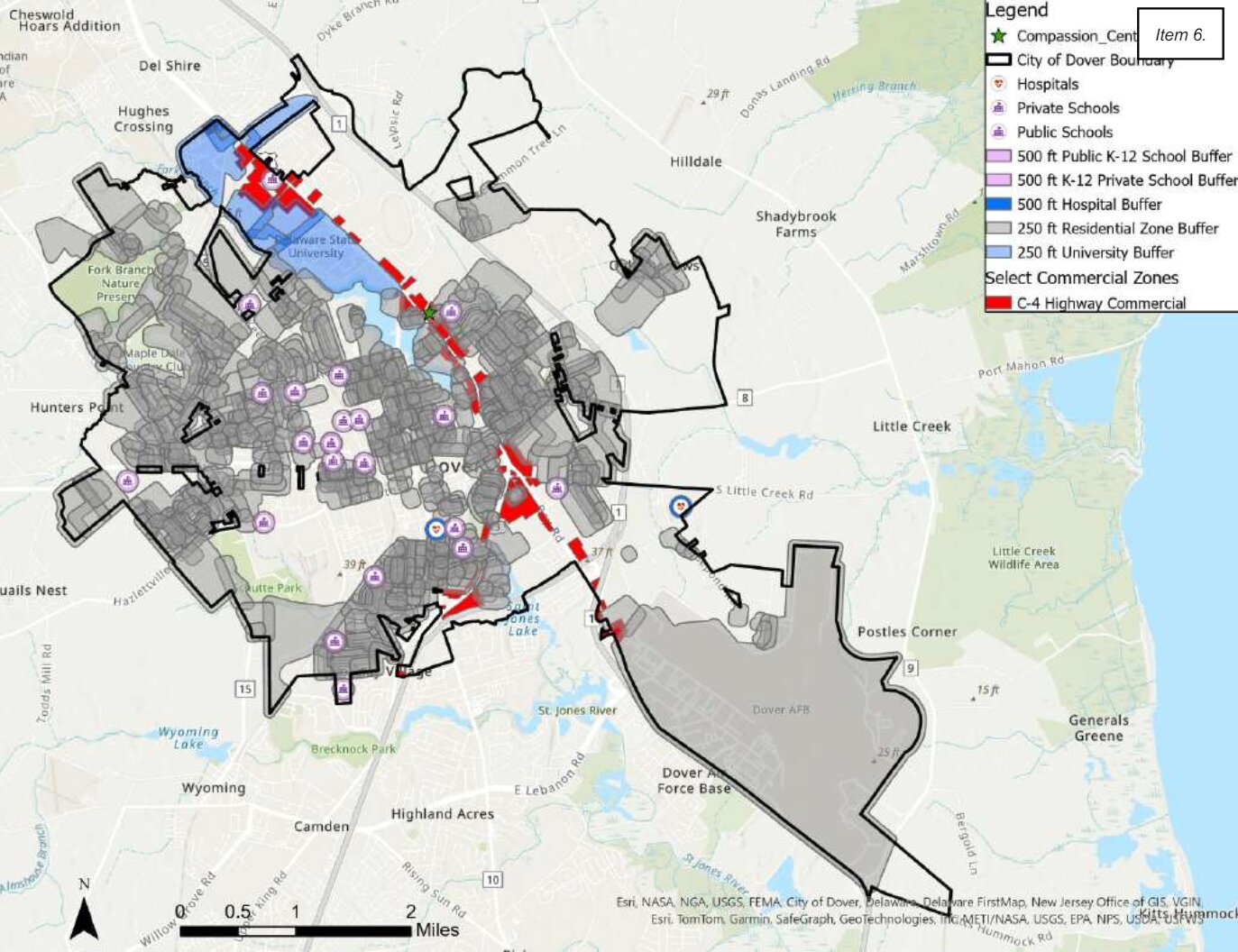Dover officials discuss proposed rules for marijuana retail
A civil engineering and planning consultant outlined a proposal regarding rules for marijuana retail in Dover city limits Tuesday, but officials decided to defer the discussion after some debate.

You must be a member to read this story.
Join our family of readers for as little as $5 per month and support local, unbiased journalism.
Already a member? Log in to continue. Otherwise, follow the link below to join.
Please log in to continue |
Dover officials discuss proposed rules for marijuana retail
DOVER — A civil engineering and planning consultant outlined a proposal regarding rules for marijuana retail in city limits Tuesday, but officials decided to defer the discussion after some debate.
Browyn Sherman, a representative from the Rossi Group, gave the presentation during a Committee of the Whole meeting at City Hall. Also in attendance were Rossi Group senior project manager Ann Marie Townshend, state marijuana commissioner Robert Coupe and deputy marijuana commissioner Paul Hyland.
The group’s plan came in the form of two ordinances: One would decide the rules for the licensing of a cannabis business, while the other would deal with zoning and distancing requirements.
The latter sparked much more discussion from the committee than the former.
According to the proposal, manufacturing facilities would be restricted to manufacturing zones and industrial park manufacturing zones, while cultivation would have to be in agricultural zones.
But the retail piece — proposed to be a permitted use in highway commercial zones — was the puzzle the consultants found most difficult to solve.
The issue was not zoning itself but the minimum distance requirements previously requested by committee members: A 1-mile distance from schools and places of worship left virtually no spots in Dover for a marijuana retail store.
However, a 500-foot buffer from K-12 schools, hospitals, residences and universities left a handful of viable places to open such a shop.
In the end, the Rossi Group’s proposal settles on 500 feet from schools and hospitals, and 250 feet from housing and universities, which opens more possibilities. Cannabis retailers would also need to be 1 mile apart.
Even the 250-foot limit has its drawbacks, though, Ms. Sherman said. One example she mentioned was that Best Buds, Dover’s medicinal marijuana center, could not transition to a retail store, as it is within the residential zone limit.
Plus, some committee members, particularly Mayor Robin R. Christiansen, said they believe there is more work to do on these rules — listing a multitude of industries that had not been considered in the placement plan, like nursing homes, homeless shelters and halfway houses.
“I really wish that we had done some more intense research as to where we’re going to put these places, if we put them in the city at all,” Mayor Christiansen said. “And like I said, I greatly appreciate your research, and I’m not giving you a dinger here but let’s go back to the drawing board.”
This statement began a debate between the mayor and City Council President David Anderson, who disagreed with his suggestions.
“City Council voted not once but twice to allow usage, and (highway commercial) was a compromise that we have, basically, with the business community to limit it,” Councilman Anderson said. “I think that attempts to shadow ban it, by coming up with everything under the sun, are disingenuous and against the will of the people in this city that overwhelmingly support legalized marijuana by approximately 2-to-1.”
Mayor Christiansen responded that he did not see the legitimacy in such polls, noting that they had misinformed council decisions in the past.
On the other hand, Councilman Brian Lewis defended the Rossi Group representatives, saying their plan had been put together based on what the committee had asked, which did not include the types of establishments brought up by Mayor Christiansen.
“Unfortunately, the State Legislature put us in this predicament when passing the marijuana law, through leaving a loophole in the state statute forcing the municipalities to create our own laws and ordinances which place a burden on our city staff,” Councilman Lewis later wrote in a statement. “It is obvious that Marijuana is here to stay after being legalized in the State of Delaware: whether the City Council allows it or not.”
Additionally, Councilman Bill Hare questioned whether marijuana retail should be allowed at all.
“If I wanted to open up a restaurant or a grocery store, and there’s a marijuana shop right next door to me, I wouldn’t do it,” he said. “So, I think we have to consider the big picture of the businesses we’re trying to attract to Dover, (with) Dover not being that big.”
Other committee members voiced concerns about environmental effects and security systems.
During the ensuing public comment period Tuesday, it quickly became clear that both supporters and opponents of the marijuana industry are not happy with the Rossi Group proposal.
Those opposing said they think there is not enough considered in the plan — for example, day care facilities. Those supporting marijuana establishments said they believe the outline is too restrictive and severely limits the drug’s business potential in the city.
Cynthia Christiansen, a retired educator and current substitute teacher in the Capital School District, has long ties to Dover.
“I grew up in the city of Dover. I walked to school, which many students still do walk to school. I smelled chocolate every morning from General Foods. I walked home from school; I smelled chicken from Richardson & Robbins. Children today walk home from school smelling marijuana,” she said. “They smell it on their playgrounds. ... I have recess duty, and I can smell (it, and) they can smell it.”
Such odor was a topic often brought up by both the public and the committee members. But Mr. Hyland noted that the state has aggressive provisions for these businesses to control their smells.
Another opponent was Dr. Dina Vendetti, president of the Central Delaware Chamber of Commerce. She said she has had conversations with other chamber leaders across the country, and they almost all claim that marijuana sales work against attempts to build family-friendly, walkable communities — a direction Dover is attempting to move in.
Meantime, attorney Adam Windett spoke in favor of the marijuana industry but said he felt the plan severely limits the facilities’ potential locations.
“Many of those parcels (as allowed by zoning and minimum distance restrictions), however, are unsuitable for retail cannabis sale,” he said. “(Many) are large lots, 4-, 5-acre plots, many of them car dealerships. ... When you factor in the 1-mile buffer between (cannabis) businesses, that’s going to even further limit available options.”
He argued that the fewer legal places to buy marijuana, the more business goes to the illicit market.
Ultimately, the committee decided that further discussion is needed and deferred that to a to-be-determined meeting.
The state could begin granting licenses for marijuana facilities in April 2025.


 By
By 



